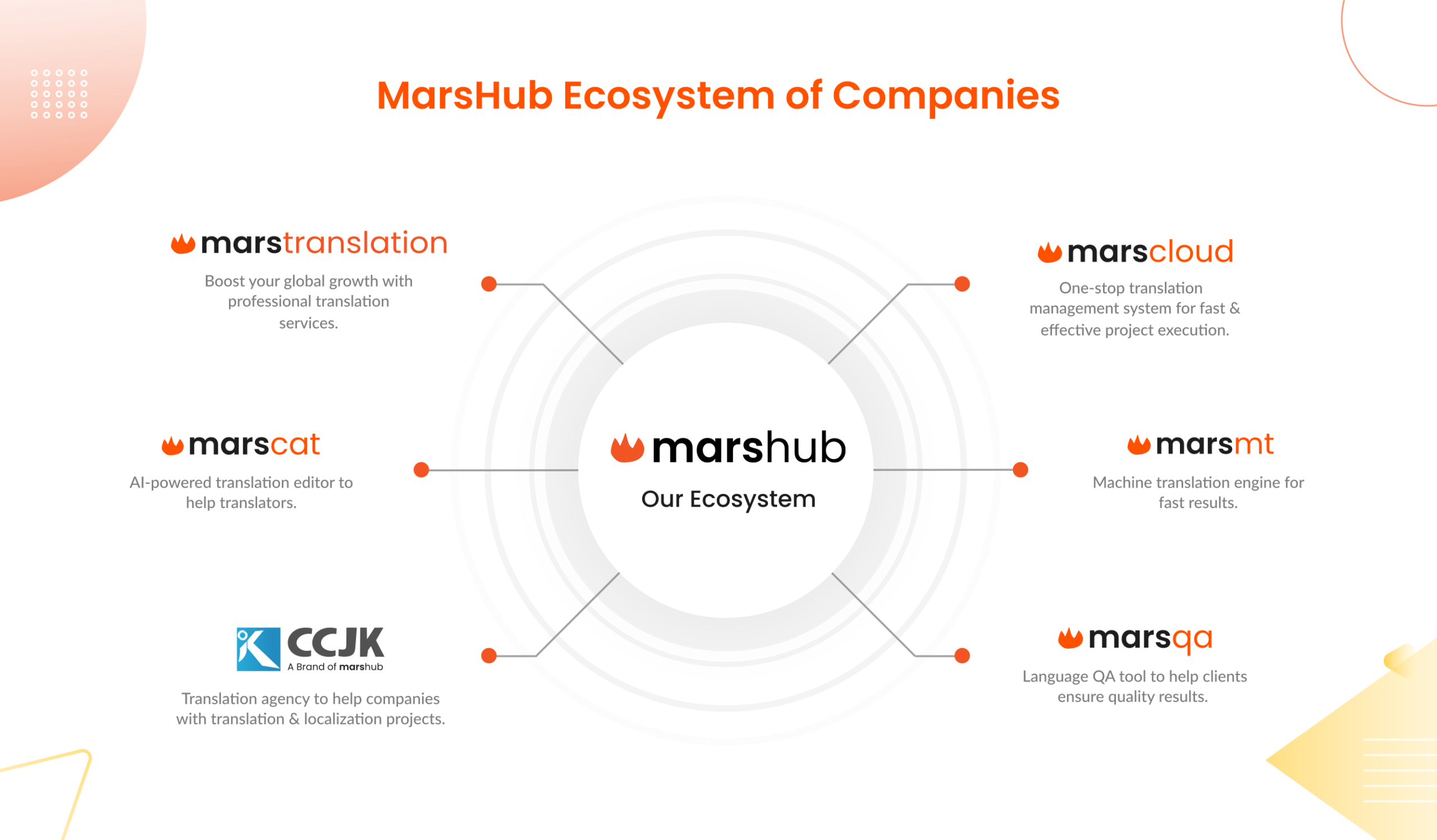Companies spend millions of dollars, plenty of time, and a lot of effort creating and building their brands. To develop a solid brand, you have to do in-depth market research and understand the psychologies of your customers. A lot of hard work goes into developing brands and making them stand strong in this highly competitive marketplace. For building international brands the struggle is even harder.
You have to deal with the cultural, social, legal, and linguistic nuances of every region you’re targeting. Translating your brand to the native languages of target audiences is one of the major aspects of your global brand expansion. Translation enhances the overall brand experience of customers, and it also helps you maintain your brand values across various regions. In this blog post, we’ll discuss the significance of translation for international brands, factors to consider while doing translations, and why machine translation is a great solution to fulfill your growing business localization needs.
Significance of Translations for Your Brand
When it comes to taking your brand to international markets, translation plays an important role in helping you appeal to more customers. Following are some major benefits of using translating and localizing your brand.
1. Smoother Entry into New Markets
Taking your brand to international markets with diverse cultures, and social nuances is not easy at all. From your business’s strategy to marketing, you have to modify everything to make your brand fit in different markets. To get the attention of more customers, you must make your brand look unique and relevant at the same time. It is the best tactic that can help your brand stand out from dozens of other competitors selling almost the same product or services.
Brand translation not only makes your brand more visible to the target audiences but also makes it more memorable for them. In less time, you can do good business in a foreign market just by translating your promotional and general business content.
2. Help B2B Businesses
By translating your brand’s content, you can attract more B2B clients. Especially, if you want to target the markets like Japan, China, Russia, or Korea, getting your brand translated is critical for your business growth. Language is a major factor when it comes to making lasting relationships with other businesses. Brands that speak local languages seem more authentic, and it allows you to grow your business by attracting more prospects.
You must send your clients localized and translated brand information, rather than assuming that they will understand the English language. Moreover, make sure your business policies and brand info documents are translated into the local languages of your clients.
3. Reach Out to Wider Customers
Do you know, that only 18% of the world’s population can speak English? Although it is one of the most spoken languages around the world, still a big chunk of the population can’t understand it. That’s why being a global business, translating your content to native languages is important. Language should not be a barrier between you and your target audience. By translating your brand’s content into local languages, you can access more customers.
Translation allows your audiences to relate to your brand and enhance customer engagement. Considering all the cultural factors while doing the translation helps you have a massive impact on your targeted groups.
4. Cost-Effective Marketing Campaigns
As far as brand promotions and advertisement are concerned, translation plays a major role in creating brand awareness. By translating the content into the native languages, you can create effective marketing campaigns – that too without spending a lot of money. Your customers can better resonate with your promotional campaigns and are more likely to buy from you.
You can use just one market ad and localize it into multiple languages, this way you can easily minimize your marketing expense for each marketplace. It also helps you hit your profit targets and increase your ROI in the fastest turnaround time.
5. Effective Communication with Target Audiences
It all boils down to communicating more effectively with your customers. Language is a major factor to consider while communicating with your customers. In the new region, people have different expectations and demands for your products and services. Just translation is not enough, you have to modify your message in a way that triggers the right emotions in your targeted customers and influences them to purchase from you.
So, the real challenge for brands is to spin the original message without changing the context and vision of your brand. You must always be mindful of what your brand stands for and make sure the context of your brand message will not alter while doing translations. You should hire professional translators to do the job or use a reliable machine translation tool to generate your brand translations.
6. Nurture Trust and Good Reputation
Translation influences your target audiences more deeply than you think. It has a huge impact on their buying behaviors and also helps you gain the trust of your customers. To build a successful brand, you have to develop trustworthy relationships with your customers and make a positive brand reputation in the market.
The more loyal are your customers towards the brand, the more business your brand will make in a foreign market. With the help of your translations, you can develop good psychology in the minds of customers toward your brand. So, the trust and good reputation of your brand play a major role in transforming your leads into profitable customers.
What Makes a Great Translation?
Translating your content into native languages is not that easy. You have to consider various factors to create professional translations for your brand. Following are some important things you must consider while creating your brand translations.
1. Tone
Your brand tone matters the most, and it has to be consistent across all regions. To keep the tone of your translation fluent, you should understand linguistic nuances. For example, if your brand tone is casual on the website for English content, it has to be casual for Spanish and Chinese as well. You can’t replicate casual English with formal Chinese. So, you must be careful about your brand tone and overall brand image in the market. Shifting the tone of your brand for every new region would not just make you lose your brand vision, but also make it hard for you to develop trust in your audiences.
2. Context
Translations are not just about swiping words from one language to another, it is more than that. You have to make sure that your translations are not just altering the text but also keeping the context of the original message alive. The context of your brand message is the most important thing you should consider while doing translations.
Make sure your translators have a good understanding of your brand, so you don’t lose track of the original context. A good translation is one that only changes the words, but the emotions, tone, style, and overall feel of the brand message remain the same.
3. Native-Friendly
Translating the content into local languages is not enough, you have to really make it feel native to get actual results. Understanding the cultural nuances and social values of your target region is significant to creating native-friendly translations. If you really want your brand message to hit the local audiences on a personal level, you better craft a native-friendly brand translation.
Knowing the culture and preferences of your target audiences helps you trigger the right emotions in your audiences and enables higher customer engagement with your brand.
4. Accuracy
Last but certainly not least, a good translation should be error-free. Your brand translation has an immense impact on your overall brand persona, translation blunders can damage your brand reputation. There should be no grammatical, logical, spelling, or contextual mistakes in your content. You can use a quality assurance system to ensure the accuracy of your translation. You can also hire linguistic experts to review and proofread the translation to ensure high quality.
Why Use Machine Translations?
The concept of machine translation is getting more popular these days. Businesses prefer using machine translation tools rather than hiring professional translation, below are some solid reasons why.
1. Quick Translation
One of the major reasons why the use of translation management systems is increasing in the corporate sector is automation and speed. Unlike human translation, it takes way less time and effort to generate translations using professional systems. Businesses prefer using paid machine translation tools because it allows them to generate high volumes of translations faster.
2. Low Cost
Hiring professional translators can be very expensive, especially if you’re hiring them as full-time employees. On the flip side, machine translation tools cost you way less and offer more value. There is no need to pay salaries to full-time employees. However, you can hire some linguistic experts to review the content translated by tools.
3. Reduce Workloads
Machine translation tools are not necessarily meant to replace human translators, the actual purpose of these tools is to help human translators by making translation management easier. Having a professional machine translation tool would reduce the workloads of your in-house employees which also enhances their overall work efficiency.
4. Enhance Accuracy
There is a debate going on about the accuracy of machine translations. However, many professional machine translation tools provide you with the best quality translation, without compromising the context and accuracy. The quality assurance systems incorporated in these tools help you generate error-free translations. All the mistakes that occurred during the translation process were eliminated by the quality assurance system afterward.
Takeaways!
Wrapping up the whole discussion, it is quite clear that translations play a major role in building your brand value in foreign markets. By creating a multilingual brand presence, you can attract more prospects and influence your target customers on a deeper level. Brand localization is becoming more common among businesses because of its impact on foreign customers. It helps you increase your sales and gain higher ROI. It is important to deeply understand the culture and regional psychologies of your target audiences, it allows you to hit your customers in the right spots.
To do your brand translation, you can hire professional translators or employ a professional machine translation tool. It totally depends on your business localization needs and overall budget.



